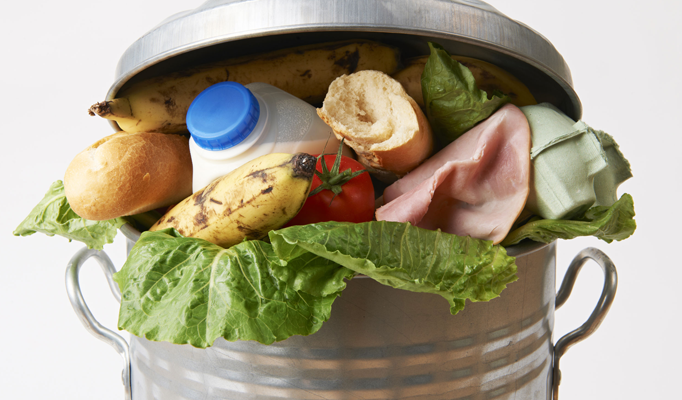
It’s sad but true. Canadians are among the worst in the developed world when it comes to food waste. Canadian households are responsible for an astonishing 63 percent of total food wasted. All types of food are wasted but in Canada the most prominently wasted food by weight are, vegetables 30 percent, fruit 15 percent, dairy and eggs 7 percent, and bread and bakery goods 9 percent. That equates to over a million tomatoes, 470,000 eggs, 650,000 loaves of bread, and 130,000 heads of lettuce. “These statistics should be a wake-up call to all Canadians,” said Lissa Bourgoin-Fraser, a retired teacher from Windsor, Ontario.
Environmental challenge
Food waste is terrible for the environment as well. A grand total of 2.2 million tons of wasted food contribute to Canada’s greenhouse gas emissions. Food waste is hard on Canadian’s pocketbooks too. On average, a typical household spends $1,300 per year on food that goes straight into the green can. Worse than that, more than 60 percent of the food that is thrown away could have been eaten. A typical Canadian household on average throws away 140 kg, or 309 pounds, of edible food every year. “I have seen food wasted in our institutions, our grocery stores, and restaurants; all this waste, while too many go hungry,” said Bourgoin-Fraser.
National Zero Waste Council
For many years Municipal governments have been aware of this but in 2013 took steps to reduce the amount of food waste that is generated by their constituents. Metro Vancouver in collaboration with the Federation of Canadian Municipalities founded the National Zero Waste Council (NZWC). The Council’s vision is to achieve zero waste for not only today’s consumer but tomorrow’s as well. Working nationally and internationally with business, government, and community partners, the Council is committed to finding solutions and being agents of change for waste prevention.
The NZWC is chaired by Coquitlam City Councillor Craig Hodge and Co-chaired by Dr. David Fung, the CEO of the ACDEG Group, a global technology integrator. Since the Council’s inception, Metro Vancouver has united with Toronto, Montreal, Calgary, Edmonton, and Halifax to work with stakeholders in the food industry, non-profit organizations, and local government to design strategies to reduce food waste in Canada.
Changing consumer behaviour
Consumer behaviour is a huge factor why so much food in Canda gets wasted. This is due to the Linear consumption model that is prevalent in North American culture. For example, a consumer will find head lettuce on sale at three heads for $5.00. The shopper buys all three thinking it’s a good deal. But because the family can’t consume the lettuce before it goes bad, one gets eaten, and the other two are thrown out. Instead, experts suggest that If you decide to buy all three, give one to your neighbour and give another to a family member and that way, there isn’t any waste and the three heads of lettuce ends up being a good deal after all.
Canada’s food retailers and producers produce so much food that it’s necessary to find outlets for their unsold portions. Cobb’s Bread, for example, donate their left-over baking to local charities and food banks. To help businesses efficiently donate excess food, the NZWC’s Working Group has produced a 52-page Food Donation Guideline. “A significant portion of what is referred to as ‘food waste’ is avoidable, if we can donate some of this excess food, it will benefit business operations, the environment and society in general,” said Bob Long, a former NZWC representative.
Education
In July 2018 the NZWC rolled out a new education and advertising campaign. Modeled after a very successful one in the United Kingdom, the Love Food – Hate Waste Campaign is a behaviour change initiative that was incredibly successful in the UK. Their initiative cut food waste by 21 percent and saved UK consumers three billion UK Pounds (five billion Canadian dollars).
The Love Food Hate Waste Campaign strives to change public behaviour by using initiatives that are designed to help people change their behaviour. One initiative is the Love Food Hate Waste website. The site provides valuable tips and advice for Canadians wanting to reduce their food waste footprint. www.lovefoodhatewaste.ca offers information about the issue and offers practical tips and advice that are easily implemented into household routines. Hundreds of recipes and recipe ideas are available to inspire the household chef and there is information on everything from Best Before dates to fridge and freezer storage guides. As well there are ten tips that make it easy to avoid generating food waste. Some of the suggestions may come as a surprise. Who says a nutritional meal has to be made completely from scratch?
Changing our habits
In today’s world with reports of food insecurity and increased numbers at Canadian food banks, a valuable New Year’s resolution would be for families to reduce their food waste numbers. Food waste in Canada is a serious issue that can be avoided if we all work together. The NZWC and their community and corporate partners strive to change consumer behaviour but it’s up to us to do our part. Plan meals, purchase only foods that you plan to eat, and use everything that you buy. For more information, visit www.lovefoodhatewaste.ca or the National Zero Waste Council at www.nzwc.ca.

Leave a Reply